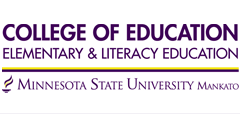Abstract
The academic task assigned to students often dictates what the student will learn, and it plays a vital role of student’s motivation and engagement of learning (Turner & Paris, 1995). Thus, the creation and usage of authentic literacy tasks is critical for students’ learning (Parsons, Malloy, Parsons, & Burrowbridge, 2015). There are three types of motivation to consider: intrinsic motivation, extrinsic motivation, and autonomous motivation. The use of authenticity, student choice, collaboration, and challenge are all components within a task that can promote student engagement and motivation. Project-Based Learning (PBL) is another way to bring in authenticity. Project-based instruction allows students participate in assignments that are challenging, provide voice and choice, and produce a product that has a purpose beyond school (Parsons, Metzger, Askew, & Carswell, 2010). Several examples and lessons are given to provide insight on how to incorporate different components of authentic tasks.
College
Education
Department
Elementary and Literacy Education Department
Recommended Citation
Rothfusz, C. (2020). Creating authentic literacy tasks influences children's engagement and motivation. Innovations and Critical Issues in Teaching and Learning 1(2), 1-20. https://cornerstone.lib.mnsu.edu/icitl/vol1/iss2/1
Creative Commons License

This work is licensed under a Creative Commons Attribution-Noncommercial-No Derivative Works 4.0 License.
Rights Statements
http://rightsstatements.org/vocab/InC/1.0/
Included in
Curriculum and Instruction Commons, Educational Methods Commons, Language and Literacy Education Commons

